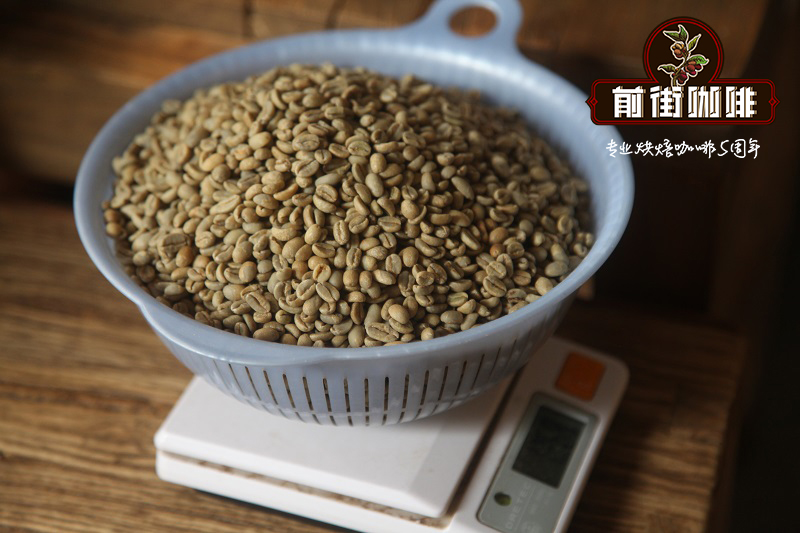What are defective beans, fine coffee, defective beans, sources of peculiar smell of raw beans

Professional coffee knowledge exchange more coffee bean information please follow the coffee workshop (Wechat official account cafe_style)
What are the defective beans that affect the aroma of coffee?
Defective beans refer to abnormally developed beans or beans that are contaminated in the refining process. If defective beans are mixed with raw beans, the aroma of coffee will be affected, and the brewing quality will be lower than that of coffee without defective beans. After picking the coffee, the farmers usually put the coffee cherries in the sink and pick out the immature fruit. When coffee enters the Dry Mill process, a specific gravity sorter will also be used to pick out immature beans, and then an electric screening machine will be used to pick out foreign bodies and defective beans. Finally, there is a manual picking procedure to ensure that no defective beans are mixed.
Defective beans of boutique coffee
Fine coffee is usually not mixed with any defective beans. On the other hand, once defective beans such as black beans or fermented beans are imported, the raw beans cannot be recognized as fine coffee. Although some small shops still pick defective beans by hand, there is no need to pick them again if they have been strictly screened for fine coffee. Quaker (immature or dead beans) must be picked out after baking. Brazilian coffee will produce astringency and bad smell as long as it is mixed with a Quaker, while coffee from Colombia and Central America will not smell as a result of mixing with Quaker, but it will still affect the aroma of the coffee. However, there are few cases of defective beans such as Quaker in boutique coffee.
The source of odor of raw beans
Most coffee beans will smell as a result of being mixed with defective beans. The following is a more common description of the smell.
1. Chemical odor
Including the smell of medicine and chlorine and other odors. Usually affected by unconfirmed dryness, Rain Water, moisture and other factors, it is the smell of raw beans caused by bacterial infection and mildew.
two。 Musty taste
If raw beans are stored in a humid environment, the fat in the coffee beans will absorb the smell of the environment. This kind of beans usually produce the stench of cheese, and the coffee brewed is cloudy.
3. Earthy taste
The peculiar smell produced by the contamination of the soil and the absorption of organic matter from the soil in the process of fruit harvesting or drying. The coffee extracted from this kind of beans is cloudy, and the final rhyme also has an earthy flavor.
4. Fermented taste
When the fruit is removed later in the washing refining process, or the raw beans soaked in the sink for too long, it will produce the bad smell of fermentation. In addition, fruits that are overripe and fall early will ferment themselves in the process of natural drying and produce a similar smell.
5. Overripe taste
Overripe fruit will make raw beans smell bad. Although these beans do not have a strong fermented smell, they produce a stronger flesh smell over time.
6. Immature taste
If the coffee beans are mixed with immature raw beans, the coffee will become cloudy and astringent. Natural dried raw beans commonly found in Brazil, as well as water-washed coffee beans that have been carefully selected.
7. Potato flavor
If the worm only gets into the coffee fruit, it will make the raw bean smell like a steamed potato. Coffee beans commonly found in Rwanda and most East African countries.
END
Important Notice :
前街咖啡 FrontStreet Coffee has moved to new addredd:
FrontStreet Coffee Address: 315,Donghua East Road,GuangZhou
Tel:020 38364473
- Prev

Do you mix coffee first or later? what's the difference between raw coffee and cooked coffee?
For more information on coffee beans, please follow the coffee workshop (official Wechat account cafe_style). Whether it is pre-mixed raw beans or individual roasted beans, it must depend on the characteristics of the coffee in the recipe. Both methods are acceptable. Mixing after baking provides different degrees of baking for each bean.
- Next

What is Ethiopian heirloom coffee? Introduction of native coffee variety heirlooms in Ethiopia
Professional coffee knowledge exchange more information on coffee beans Please follow the coffee workshop (Wechat official account cafe_style) the birthplace of Ethiopia's Arabica coffee beans, where people still maintain the tradition of harvesting wild coffee beans. The coffee garden with an elevation of more than 1500 meters has formed a unique coffee style after thousands of years of evolution and adaptation. Born in a natural wild environment
Related
- Guji coffee producing area of Guji, Ethiopia: Humbela, Shakiso, Wulaga
- What is the most expensive variety of Qiloso in BOP multi-variety group?
- How to store the coffee beans bought home?
- Why are Yemeni coffee beans so rare now?
- Ethiopian Sidamo all Red Fruit Sun Sun Santa Vini Coffee beans
- SOE is mostly sour? What does it mean? Is it a single bean? what's the difference between it and Italian blending?
- Is Italian coffee beans suitable for making hand-brewed coffee?
- How to choose coffee beans when making cold coffee? What kind of coffee beans are suitable for making cold coffee?
- Just entered the pit to make coffee, what kind of coffee beans should be chosen?
- Can only Japan buy real Blue Mountain Coffee? What are authentic Jamaican Blue Mountain coffee beans?

